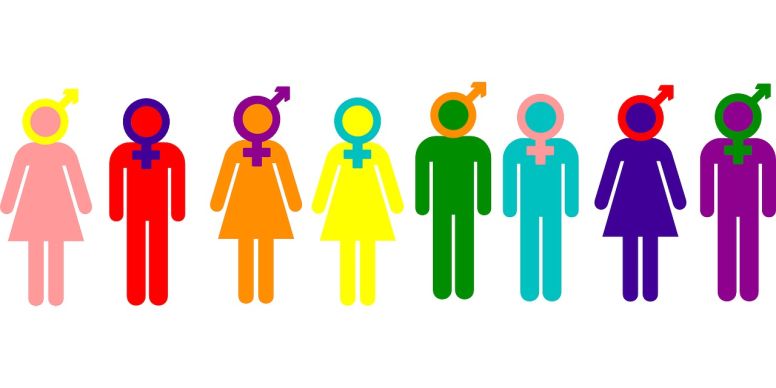Access to the right healthcare continues to be an important issue for U.S. citizens. LGBTQ+ individuals in particular are among those struggling to gain healthcare rights.
The LGBTQ+ (lesbian, gay, bisexual, transgender and queer) community is growing and becoming more forthcoming in stating their needs. Not only do some of the people in the LGBTQ+ community need the funding for hormone treatment and sex-reassignment surgeries, but there are basic needs that those in the LGBTQ+ community are struggling with that they need the proper care and funding for.
For instance, gay men are at more of a risk for HIV-AIDS than are heterosexual men. Additionally, people in the LGBTQ+ community are also more subject to mental illnesses such as depression and anxiety, both of which can lead to suicide. LGBTQ+ individuals are nearly three times more likely to experience mental health conditions such as depression and anxiety, according to the National Alliance to Mental Illness.
Mental health has very limited coverage under insurance plans. This makes it hard for people who are not a part of the LGBTQ+ community who are suffering with mental illnesses to find the proper resources to cope with their mental illnesses, let alone people who are in the LGBTQ+ community.
According to the National Center for Biotechnology Information, 3.5 percent of Americans identify themselves as either homosexual or bisexual and 0.3 percent identify themselves as transgender.
The NCBI also points out that the LGBTQ+ community belongs to every race, religion, ethnicity, age and socioeconomic group.
Because the LGBTQ+ community is growing and gaining awareness, many Americans would think that they are at a guarantee for healthcare, but they are not. Nobody in America is guaranteed healthcare.
Cabrini University’s first-ever gender and body studies major, Lauren Stohler, touched on the importance of healthcare in the LGBTQ+ community.
“Those in the LGBTQA [A standing for asexual individuals] suffer from not only unique health risks, but they often suffer from far more typical health issues than heterosexuals and cisgendered individuals do,” Stohler said. “Homosexual men are six times more likely to attempt suicide than heterosexual men are and, not only that, but the LGBTQA youth are at around three times more likely to attempt suicide as well.”
On Cabrini’s campus, students can go to health services or counseling and psychological services to seek any medical help they may need.
Susan M. Fitzgerald, the director of student health services on Cabrini’s campus, said that Cabrini’s health services are able to provide for all students but there are off-campus places that specialize in LGBTQ+ healthcare that can do more than Cabrini can.
“Cabrini can offer all students on campus the same kind of services and level of care. We’re very fortunate to be where we are and have access to some of the best healthcare in the world,” Fitzgerald says. “There happens to be an amazing specialty center in Philadelphia, the Mazzoni Center. We refer there because they are experts in providing that kind of care.”
The Mazzoni Center is a non-profit organization located in Philadelphia that helps provide healthcare to those in the LGBTQ+ community. According to their website, their mission is: “to provide quality comprehensive health and wellness services in an LGBTQ-focused environment, while preserving the dignity and improving the quality of life of the individuals we serve.”
The Mazzoni Center offers healthcare, counseling and recovery, LGBTQ+ youth information and HIV prevention and care. The center also provides information training and resource information on LGBTQ+ legal services.
The Mazzoni Center is among the small number of groups in our country who are working to provide a healthier life to those in the LGBTQ+ community.
Although America still has a long way to go in addressing healthcare issues for the LGBTQ+ community, universities such as Cabrini are starting to incorporate the topic as an important social justice issue.
Stohler is one of the Cabrini students who has begun to experience LGBTQ+ education.
“Sadly, I haven’t learned much in my classes about LGBTQA health issues, but we definitely have touched on them. Whether it was the Women and Sexuality course I took or Intro to Bodies Studies, we studied an array of different topics regarding gender and sexuality,” Stohler said.



